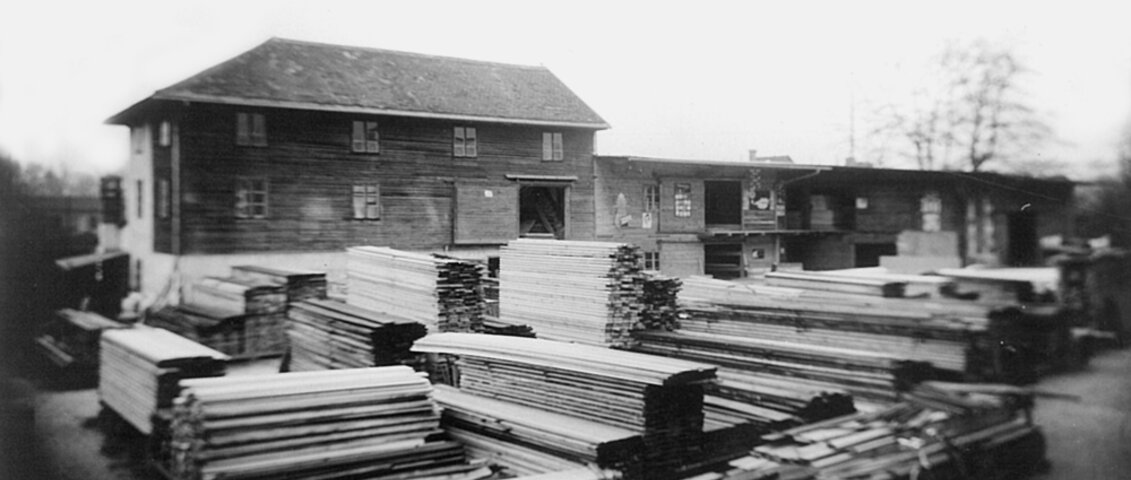THE HISTORY OF JAF
The married couple made a virtue out of a necessity after the Second World War. Josef Frischeis, unable to take over his parents’ farm due to a childhood illness, searches for an alternative source of income and discovers this in timber trading. The company starts business on 26 November 1948 after a trading license for timber and wood products is granted. Together with his wife, Antonia, who kept a close eye on the finances, the couple went on to establish a country-wide network of branches. Following the death of his father in 1978, son Johann takes over the management of the group and further guides the company into an era of international growth in a visionary manner. All the time supported by his mother, Antonia: A successful businesswoman whose strong character and commitment has made a lasting impression on the company. Antonia remained closely tied to the company until her death in 2012 at the age of 90.
After the opening of a number of smaller outlets in the vicinity, in 1959 the first two Austrian branches of JAF, besides the headquarters in Stockerau, opened in Linz and Bad Hof Gastein. The Vienna-based wholesaler of veneers, Holver, is acquired in 1964. Branches in Villach, Salzburg-Bergheim, Graz and Brixlegg soon follow, meaning that the company has a foothold with at least one branch in nearly every Austrian province.
Cracks start to appear in the Iron Curtain dividing Europe at the end of the 1980s. Johann Frischeis becomes one of the first to exploit this major opportunity and starts establishing strong commercial ties to Eastern Europe. The first foreign subsidiary of JAF opens in Leipzig (Germany) shortly after the fall of the Berlin Wall. This is soon followed by subsidiaries in the Czech Republic, Slovakia and Hungary. A few years later and JAF is also present in the Romanian, Slovenian and Croatian markets.
The early years of the new millennium are marked by intensive efforts to expand the network of subsidiaries and branches throughout Europe. Modern showrooms make the extensive product range tangible for customers. The warehouse and logistics infrastructure which ensures reliable and speedy deliveries to customers is swiftly expanded. From 2007, JAF itself becomes a manufacturer in the Romanian market. Top-quality veneers, sawn and profiled timber are now manufactured at its own facility in Braşov. The end of the first decade of the new Millennium sees the opening of the first processing centres in which panels and boards are cut and edged.
In 2014, JAF becomes the new owner of the formerly Danish DLH Group, which operates from Asia and Africa to supply the target markets China and Vietnam. In doing so, JAF takes on a new role as a critical link between international customers and spreads its network to penetrate the international market. Having always been on hand to advise the management team of the JAF Group until the end, Johann Frischeis dies in 2020. The company however continues to be led based on his values and to grow successfully both in Europe and further afield.
With the commissioning of the fully automated furniture production line in Stockerau, the JAF Group takes another significant step in the service sector. The furniture construction area is also being significantly expanded outside of Austria. As a partner of the woodworking trade, the company is forward-looking in its orientation to the needs of its customers and is also continuously developing digital offerings. The acquisition of DLH Poland and DLH Slovakia in 2023 will mark another important expansion step in the European timber trade.




